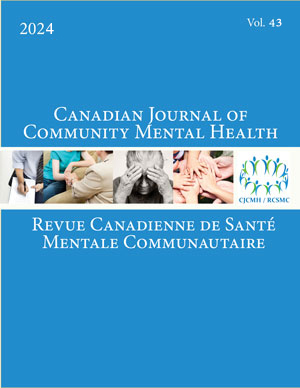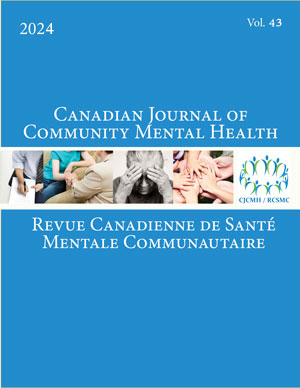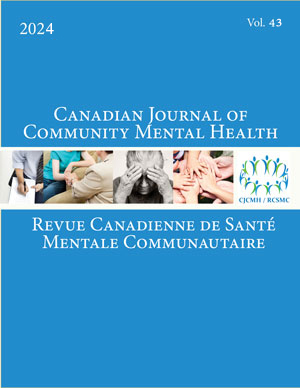Volume 28 • Number 2 • September 2009
OPEN ACCESS
The Mental Health Commission of Canada is developing a strategy to transform the mental health system in Canada. National consultations held in spring 2009 provided feedback on a proposed framework of goals for the strategy. The first goal discusses a recovery orientation for people living with mental health problems and illnesses. Consultation participants strongly supported a recovery orientation but raised a number of concerns, especially for children, youth, and seniors. In response, the strategy will position recovery as part of a comprehensive approach that includes promoting the best possible mental health and well-being across the lifespan.
OPEN ACCESS
This article examines how the recovery concept has been introduced into national mental health policies in New Zealand, Australia, and England. Five overall themes are identified as critical in shifting to a recovery-oriented system: restructuring of mental health services, promoting mental health and preventing mental illness, developing and training the workforce, cultivating consumer participation and leadership, and establishing outcome-oriented and measurable practices. These issues are vital in the uptake of recovery and should guide the overall direction of the Canadian Mental Health Commission's mental health strategy.
OPEN ACCESS
A Capabilities Approach to Mental Health Transformation: A Conceptual Framework for the Recovery Era
Recent commissions in Canada and the United States have stipulated recovery to be the overarching aim of mental health care and have called for systems of care to be transformed to be made consistent with this aim. If these efforts are not simply to repeat the mistakes of the past, a new conceptual framework will be needed to provide an alternative foundation for rethinking the nature of care for people with serious mental illnesses. In this paper, the authors identify the limitations of the conceptual framework of the deinstitutionalization movement and then offer the capabilities approach developed by Sen (1992, 1999) and others as a more adequate framework for the post-institutional era.
OPEN ACCESS
The integration of treatment and psychiatric rehabilitation in mental health services is challenging to realize but essential for a mental health system that has endorsed recovery as its guiding vision. This paper advocates the use of tensions in practice as a means of reconciling integration issues and advancing recovery-oriented service delivery. The paper follows with three scenarios of daily tensions in practice that serve as a foundation for analyzing and ultimately reconciling tensions in integration. Finally, six guidelines covering a range of organizational, administrative, financial, and service delivery perspectives are provided to guide the development of integrated treatment and rehabilitation toward a recovery-oriented system.
OPEN ACCESS
Community-based participatory research is an enabling and empowering practice that is based in principles that overlap with those of mental health recovery. Using a participatory approach, an advocacy group called the Dream Team, whose members have mental health issues and live in supportive housing, planned and conducted a study of the neighbourhood impact of two supportive housing buildings in Toronto. The study found that tenants do not harm neighbourhood property values and crime rates, and that they do make important contributions to the strength of their neighbourhoods. This article demonstrates the strength of a self-directed collective of individuals who are prepared to challenge stigma and discrimination, and documents their use of participatory action research as a proactive strategy to contribute their knowledge to discussions that shape the communities, services, and politics that involve them.
OPEN ACCESS
Evaluations of mental health outcomes have traditionally focused on indicators of mental health maintenance and stability. Although many jurisdictions in Canada are incorporating the principles of recovery into mental health services, evaluation practices and accountability frameworks have not kept pace with this shift in thinking. In our local regions of Waterloo and Wellington-Dufferin, Ontario, an innovative partnership between mental health agencies and consumer organizations has developed to apply principles of recovery to system-wide case management. In this article we describe the development of a comprehensive logic model framework designed to assess the impact of system-wide changes to practice. The model is grounded in the experiences, needs, and expectations of service users. This framework positions recovery-focused outcomes as alternatives to maintenance-based outcomes and as central to knowledge development and accountability in mental health systems.
OPEN ACCESS
This paper presents an anti-stigma and anti-discrimination program for social work students. This educational module is designed to be incorporated into current courses on anti-discriminatory/oppressive social work practice, which are mandatory in Canadian social work education. The program is novel, as it builds on both mental health recovery values and critical social work.










